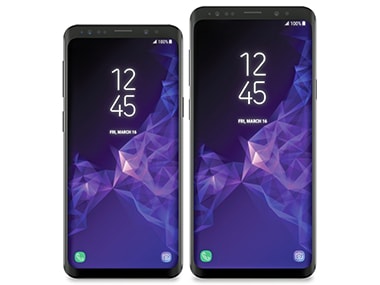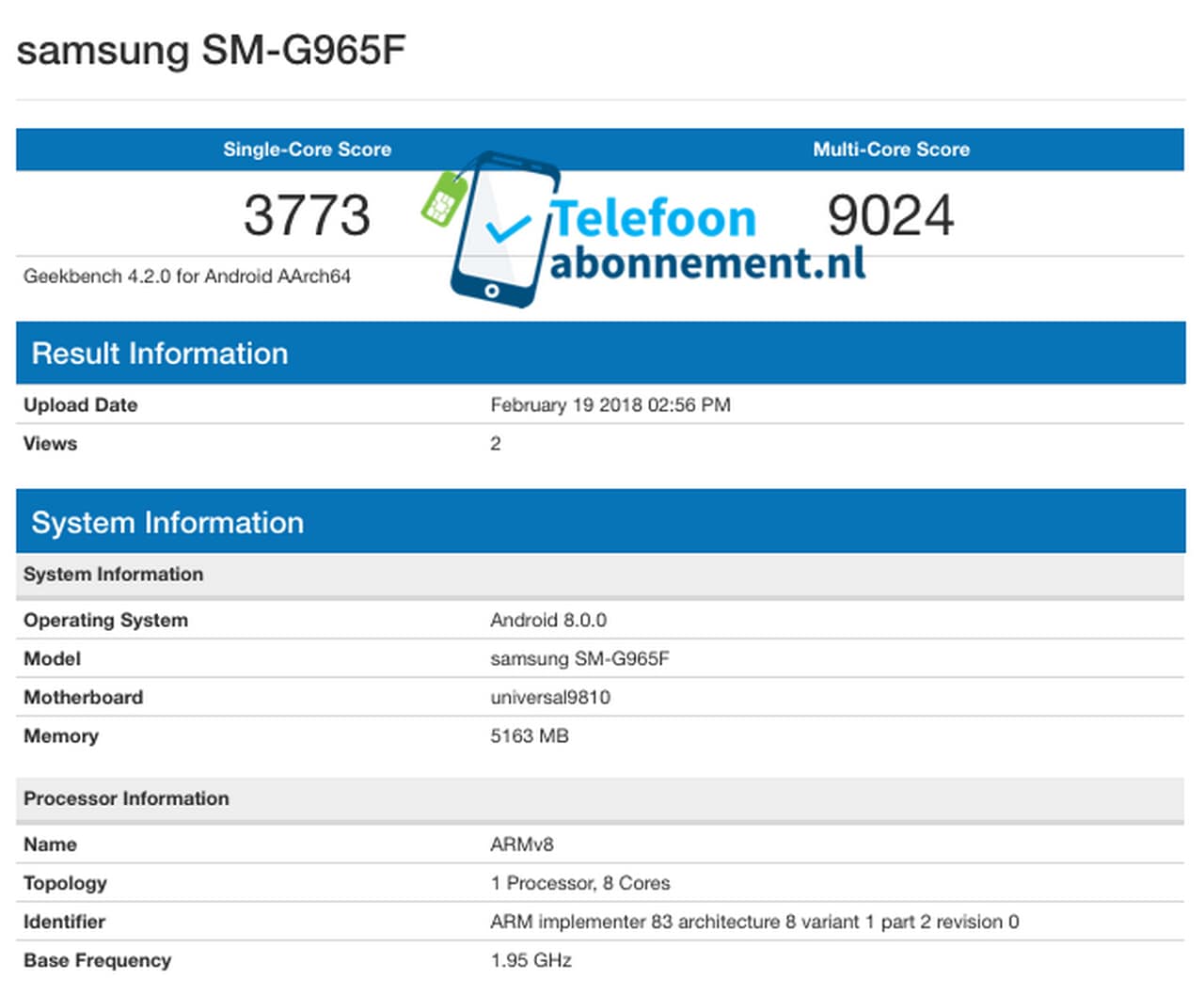The Samsung Galaxy S9 and S9 Plus have seen several leaks so far. But new leaks from various sources have now revealed new details about the premium smartphone’s pricing and performance as well. [caption id=“attachment_4321695” align=“alignleft” width=“380”] Leaked images of the Samsung Galaxy S9 and S9+ Image: Venturebeat[/caption] We are less than a week away from the final reveal of the soon to be announced Galaxy S9 smartphone at Samsung’s Galaxy Unpacked event, set just before the Mobile World Congress. Fresh new leaked information comes from Tech Radar that
claims
the Galaxy S9 will start from GBP 739 (roughly Rs 66,700) in the UK. Next up is Clove UK a retailer which
claims
that the S9 will start from GBP 800 (roughly Rs 72,000), inclusive of VAT in the UK. WinFuture’s Roland Quandt also
tweeted
that Galaxy S9 will start from NOK 8,790 (approximately Rs 72,000) in Norway with the Plus version being priced at NOK 9,790 (roughly Rs 80,900), which is pretty steep. Also a part of the new price leaks are some details about the smartphone’s performance, using benchmarks. Samsung’s Galaxy S9 Plus was reportedly tested on Geekbench, which ended up revealing its scores. The benchmark’s screenshot was
leaked
by Telefoon Abonnement, which gives us a fair idea about the device’s synthetic performance. [caption id=“attachment_4359541” align=“alignnone” width=“1280”]
Leaked images of the Samsung Galaxy S9 and S9+ Image: Venturebeat[/caption] We are less than a week away from the final reveal of the soon to be announced Galaxy S9 smartphone at Samsung’s Galaxy Unpacked event, set just before the Mobile World Congress. Fresh new leaked information comes from Tech Radar that
claims
the Galaxy S9 will start from GBP 739 (roughly Rs 66,700) in the UK. Next up is Clove UK a retailer which
claims
that the S9 will start from GBP 800 (roughly Rs 72,000), inclusive of VAT in the UK. WinFuture’s Roland Quandt also
tweeted
that Galaxy S9 will start from NOK 8,790 (approximately Rs 72,000) in Norway with the Plus version being priced at NOK 9,790 (roughly Rs 80,900), which is pretty steep. Also a part of the new price leaks are some details about the smartphone’s performance, using benchmarks. Samsung’s Galaxy S9 Plus was reportedly tested on Geekbench, which ended up revealing its scores. The benchmark’s screenshot was
leaked
by Telefoon Abonnement, which gives us a fair idea about the device’s synthetic performance. [caption id=“attachment_4359541” align=“alignnone” width=“1280”] The Samsung Galaxy S9 Plus Exynos 9810 Geekbench scores. Telefoon Abonnement[/caption] Samsung’s upcoming Galaxy S9 Plus smartphone with an Exynos 9810 SoC inside, scored a staggering 3,773 points in the single-core test and 9024 points on the multi-core test. The scores are a tad bit higher than its younger sibling the Galaxy S9 which scored a commendable 3,773 points in the single-core test and a 9,024 points in the multi-core test. The scores are
reportedly
also a lot higher than the Qualcomm Snapdragon 845 SoC scored lower (2,422 and 8,351 respectively). However, both smartphones
still fall short
of last year’s iPhone 8 model model which scored 4,217 points in the single-core test and 10,127 points in the multi-core test. While this year’s iPhones are expected to do better, Samsung’s jump in scores (if the screenshot does turn out to be genuine) is commendable as it closes the gap by quite a margin.
The Samsung Galaxy S9 Plus Exynos 9810 Geekbench scores. Telefoon Abonnement[/caption] Samsung’s upcoming Galaxy S9 Plus smartphone with an Exynos 9810 SoC inside, scored a staggering 3,773 points in the single-core test and 9024 points on the multi-core test. The scores are a tad bit higher than its younger sibling the Galaxy S9 which scored a commendable 3,773 points in the single-core test and a 9,024 points in the multi-core test. The scores are
reportedly
also a lot higher than the Qualcomm Snapdragon 845 SoC scored lower (2,422 and 8,351 respectively). However, both smartphones
still fall short
of last year’s iPhone 8 model model which scored 4,217 points in the single-core test and 10,127 points in the multi-core test. While this year’s iPhones are expected to do better, Samsung’s jump in scores (if the screenshot does turn out to be genuine) is commendable as it closes the gap by quite a margin.
Samsung Galaxy S9 and S9 Plus to be priced higher with equally good performance: Report
tech2 News Staff
• February 20, 2018, 14:59:54 IST
Less than a week away from the reveal of the Samsung Galaxy S9 smartphone the new Exynos 9810 Geekbench scores have now leaked out along with pricing details.
Advertisement
)
End of Article